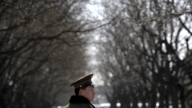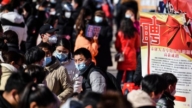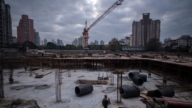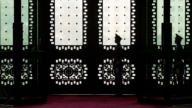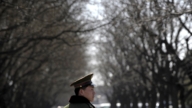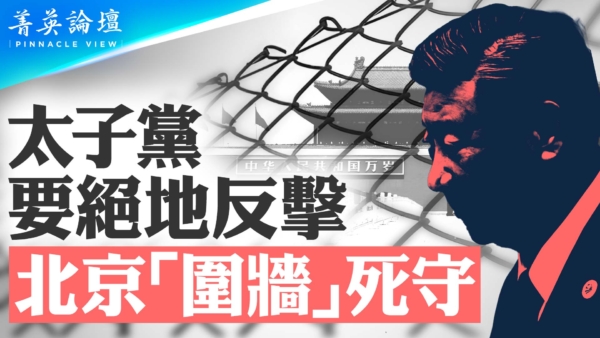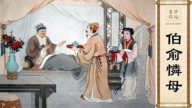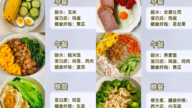【新唐人2014年03月11日讯】在正在召开的中共“两会”上,中共领导人习近平提出“不能在一片改革声浪中,把国有资产变成谋取暴利的机会。”媒体高调报导。但回顾历史,中共的高官家族在过去30年中,利用各种手段占有国有资产,中国的国有资产流失并成为私人垄断行业的现象越来越严重。下面请看详细报导。
“国有资产”是指属于国家所有一切财产和财产权利的总称。
而国有企业私有化,则是把国有企业卖给民营公司、外资公司或个人等,非国家控股的企业或个人。国有资产流失就是国有资产的出资者、管理者、经营者,因主观故意或过失,违反法律、行政法规和规章,造成国有资产的损失。
回顾历史,1949年中共建政后在城市没收资本家财产后,又针对民族资本家和私营个体劳动者,搞所谓公私合营,取缔私有经济﹔在农村搞所谓“人民公社”,土地收归国有等。
文革后1980年代,中共开始所谓改革开放。国有资产流失的现象越来越引起学者的重视。
原中国民营企业家陈俊贤:“国有是全民所有,但是中国人从来没有得到一分钱的红利。在改革开放之后的话,国企、集体企业政企分开,就把国有企业、集体企业,都把它卖掉了,老百姓又没得到一分钱。国有资产到哪里去了呢?大部分就落到‘红顶商人’那儿。”
中国最热点人物——神秘富商周滨,被大陆《财新网》曝光,时任“中石油”公司总经理的蒋洁敏,曾亲自批示,以极低价格将“长庆油田”的两个油区,包给了周滨,周滨转手就赚了5个亿,造成国有资产严重流失。而周滨是中共前政治局常委,政法委书记周永康的长子。
旅加前宁波工程学院教授张新宇:“八十年代,他要出口的话,出口什么或者进口什么,必须共产党的干部领导来批,这就叫批文。这个批文就是一种权力,那么因此第一代太子党他起来的,就是利用批文起来的。”
1989年由学生发起的“反官倒、反腐败”学运,就是针对这一现象,而遭到北京的暴力镇压。
张新宇:“92年左右,引进了这个股票,共产党那个股市,消息都是他手里抓着。就是通过他们内部的消息,不断的让他们这些延安儿女后代发财。后来九十年代后期,开始所谓的国营企业私有化过程,定价都是由领导说了算的,也就是他父亲来定价的,他儿子来买,或者是儿子再跟地方的一个当官的或有钱的,互相串通起来。”
现居加拿大的前宁波工程学院教授张新宇介绍,后来中共搞所谓招商引资,太子党们又以发展经济为名,到银行贷款几千万,上亿元,但有贷无还。最后这一笔烂账被全部转到中央银行,由中国老百姓承担下来。
张新宇:“共产党这帮流氓,坑蒙拐骗,用一种变相的,嘴上说的是我是公有制,我是社会主义,但是它用各种办法来进行一个私有化过程,整个过程就是把大量的国营的、社会的财富,全部私有化到他们的后代手里”
中共前党魁江泽民当政期间,对大量国有企业进行兼并、股份制改造等,造成上百万工人失业﹔同时,以江泽民、曾庆红为首的太子党家族垄断中国通讯、能源、矿山、金融等行业,使国有资产严重流失。
大陆实力最强的国企有中石油、中石化、中海油、中国电信、中国建筑等,其中中石油和中石化曾经长期被周永康家族盘踞,中海油则由曾庆红家族把持。江泽民的儿子江绵恒被称为“电信大王”。
民众对中共高官家族占有国有资产,早已心灰意冷。有网友说:国内的私有化不过是领导变老板,以私有之名利用行政资源享垄断之实,所以改不改都一样。
采访编辑/唐音 后制/萧宇
Where are the State-owned assets? Who made excessive profits from them?
During the Chinese Communist Party’s parliamentary meetings,
Chinese president Xi Jinping said, “Reforms cannot be taken
as an opportunity to make excessive profits from state-owned assets".
His remarks got a lot of media attention.
However, the situation of senior officials and their families
taking state-owned assets for their own private monopolies
has only gotten worse in the past 30 years.
Let’s see the report.
The term “State-owned assets" collectively refers to all
properties and property rights of the state.
The privatization of a state owned enterprise (SOE) is to sell the
SOE to foreign or domestic private companies, or individuals.
A state owned asset is lost when it is damaged due to the
intentional or negligent violation of laws by investors,
managers, or operators.
After the CCP came to power in 1949, it confiscated capitalists’
assets and merged them with private business assets to create
state-owned businesses, abolishing the privatized system.
In the countryside, all land was seized by the CCP,
turning it into state-owned land.
After the Cultural Revolution, the CCP began
so-called reform and opening up in the 1980s.
The phenomenon of state-owned asset loss
has drawn increasing attention from scholars.
Chen Junxian, former Chinese private entrepreneur:
“State-owned means it is owned by the people; but the
Chinese people never see a penny of bonuses.
After the reform and opening up, the state-owned enterprises
and collective enterprises were separated, and later sold;
the Chinese people still didn’t get one penny.
Where are the state owned assets?
Most of them fell into the pockets of red crown businessmen."
During the CCP’s annual parliament meetings, China’s
most popular person – a mysterious businessman Zhou Bin,
was exposed by Caixin website.
Former PetroChina general manager Jiang Jiemin personally
sold two oil fields to Zhou Bin for very cheap.
Zhou Bin handed out and earned 500 million,
resulting in serious loss of state assets.
Zhou Bin is the eldest son of Zhou Yongkang,
the former CCP Politburo Standing Committee member
and former head of the Central Politics and Law Committee.
Zhang Xinyu, former Ningbo University of Technology professor:
“In the 1980s, both import and export had to be approved by the
CCP cadres, that’s the official approval.
It’s a type of privilege.
That’s how the first generation of princelings gained their power."
The 1989 student movement of “anti-profiteering, anti-corruption"
opposed this phenomenon.
They faced violent cracked down by Beijing for this.
Zhang Xinyu: “The stock market was introduced around 1992 and
the stock information was controlled by CCP.
They continually made those Yan An descendants become rich
by internal stock information.
In late 90s, in the so-called privatization of SOEs,
officials decided the prices, which means the father set
the price and the son paid the bill, alone or in collusion
with a local official or rich person."
Professor Zhang Xinyu says that in the name of the CCP’s
policy of attracting capital, princelings received tens of millions
or billions of yuan in loans from banks in the name of developing
the economy but never repaid them.
Finally, all the bad debt fell on the central bank,
to be undertaken by the Chinese people.
Zhang Xinyu: “The hooligan CCP has lied and cheated
in disguise of public ownership and socialism.
In privatization, a large amount of state-owned
and social wealth fell into their hands."
During the administration of former CCP leader Jiang Zemin,
a large number of SOEs went through merging and restructuring,
resulting in millions of unemployed workers.
In the meanwhile, the families of the princelings, headed by
Jiang Zemin and Zeng Qinghong, monopolized
China’s telecommunications, energy, mining, and finance,
and caused serious loss of state assets.
Among the most powerful SOEs, PetroChina and Sinopec
have long been entrenched by Zhou Yongkang’s family;
while China’s National Offshore Oil Corporation
was dominated by Zeng Qinghong’s family.
Jiang Zemin’s son Jiang Mianheng was called the
“king of telecommunications".
People have completely lost their hope
for the state assets occupied by CCP officials.
Some netizens say the privatization
is just officials becoming the boss.
In the name of privatization,
the administration enjoys its monopoly on resources.
Interview & Edit/Tang Yin Post-Production/Xiao Yu


